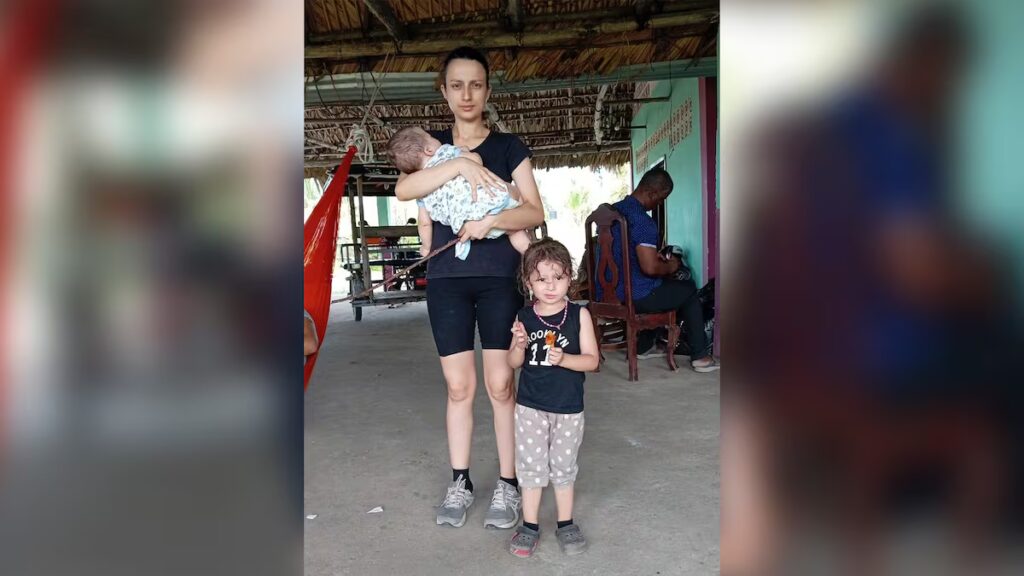
This is an episode of the weekly newsletter from Mexico, which can be followed for free at this link.
The last conversation with her daughter left her calmer. He showed him the sea, the exit through which he would advance by boat north. There was less to encounter. Her mother was waiting for her in the United States, where she had arrived from Honduras. Cindy Bueso, 29, was traveling with her two children, a three-year-old girl and a six-month-old baby. “Mom, I’m turning off the phone because we’re leaving”, was the last communication on the afternoon of October 21, 2024. From then on, a thunderous silence.
There were 19 other people traveling with Cindy. Previously, in September, another group of 23 migrants had disappeared. And then, in December, another 40 were lost. All on the coast of Chiapas between Puerto Madero and San José El Hueyate, a small fishing town near the border with Guatemala. 83 people have been swallowed by the sea. This is the strange explanation that the authorities seem to give. Because the case was not discovered by the police, military or politicians on duty. It was the work of the organizations and my colleague Beatriz Guillén that put yet another tragedy on the map in a country with more than 130,000 missing people.
Guillén traveled to San José El Hueyate to write the report The Mexican people who make migrants disappear. He had previously published two other texts which confirmed, with dozens of sources from relatives of the victims, the disappearances of various groups of migrants. The “modus operandi” was repeated in all three cases: shipping routes controlled by northbound coyotes that never reach their destination.
For this latest report, Beatriz arrived in the village following the clues provided to her by Cindy’s family, who contacted her via
Cindy’s specific case provides some clues as to what might be behind the mass disappearances on the coast of Chiapas. The coyotes, who usually send family members all proof of the trip as some sort of collateral, never shared a picture of Cindy and the children already on the boat. Furthermore, in the 13 months since their disappearance, they have received several notices from people who saw them in Puerto Madero, another nearby town. They are contradictory messages: working as a waitress, transported by taxi drivers, with her children, without her children.
“I believe that my daughter was kidnapped, but now, in my heart, I think that my daughter is there, in Chiapas, perhaps she was freed, but she fell into the hands of someone who makes her work, perhaps to survive,” the mother says in the report. The clues point to a migrant smuggling network. But, once again, this is not a thesis that comes from the authorities. The families filed complaints with the Search Commission, the Chiapas Prosecutor’s Office and also the General Prosecutor’s Office (FGR). So far they have not received any real evidence.
Guillén consulted the Chiapas Prosecutor’s Office for Migrants, in charge of the case, but received no response. The victims’ lawyers told him that the Prosecutor’s Office itself had told them, just a month ago, that it had learned of the case from the news that appeared in this newspaper, when some reports had already been filed in January. They did not even have access to the investigation file number, a fundamental procedural right. Furthermore, the wanted posters distributed in the city contain photos and data taken from the complaints.
“Incompetence and institutional failures make the families helpless. They asked the FGR to take over the case, due to the clear involvement of organized crime, but they rejected it,” Guillén explains to me. The mother of another of the missing, Alicia Santos, says desperately from Cuba: “We have exhausted all available resources. We have filed complaints, begged the authorities and provided information. Isn’t the life of a migrant worthless in Mexico?”
EL PAÍS offers almost 60 newsletters on a wide variety of topics they have has exceeded one million registered readers and where the economic issues lie feminism cinema, chess and philosophy. The most popular are ‘The director’s letter‘, ‘The country of the morning‘, ‘The director’s choice of Cinco Días‘and that of the cultural supplement’Babelia‘.





